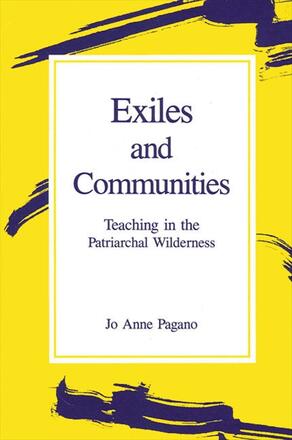
Exiles and Communities
Teaching in the Patriarchal Wilderness
Alternative formats available from:
Description
This book is a meditation on the profession of teaching from the perspective of a woman whose intellectual identity as teacher and writer is inseparable from her whole life as a woman. Pagano brings the methods and insights of feminist psychoanalytic literary criticism to bear on a reading of her own educational practice in order to reach a transformed understanding of the educational enterprise. She raises serious questions: How are we implicated in what we know? What actions are required by our knowledge? Responses to these questions are given with probing analyses of practice, ethics, gender, knowledge, and curriculum. In Exiles and Communities: Teaching in the Patriarchal Wilderness Jo Anne Pagano teaches us how to teach as she sustains identity in transformation and relinquishes neither the world nor other people to thought.
Jo Anne Pagano is an Associate Professor in the Department of Education at Colgate University.
Reviews
"Pagano's integration of personal stories that resonate with the points she makes in her arguments make this an unusually well-wrought work. The texture of the work is many-layered, as are her insights into the ways that mainstream masculinist educational theory have been detrimental to females in the classroom, whether as students or teachers. " — Lee Quinby
"Pagano shows us how to think differently about experience without repudiating it. She still has affection for what she leaves behind. And in that affection she gives us important lessons in feminist pedagogy: respect for the specificity of experience, for the power of desire, for the people we were as well as the people we would become. " — Madeleine Grumet